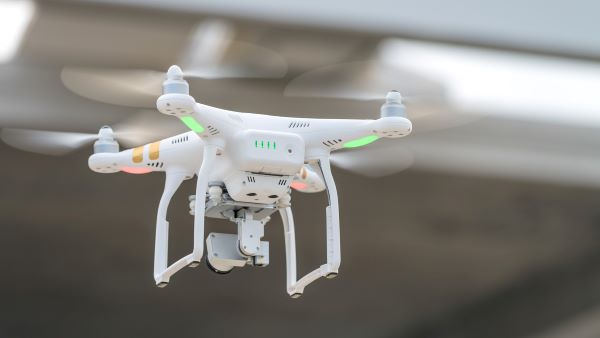Blog
Technology Changing the Construction Industry in 2024

Few industries remain untouched by technology. It wasn’t long ago that cash registers were operated manually and that credit card payments were taken with imprint equipment that embossed raised names and numbers on carbon paper.
Today, customers use touchscreen tablets to make in-store purchases or simply order remotely by home computer or mobile phone. While trades like construction may operate a bit differently, there are still plenty of ways technology is changing the industry. Which technologies have had the biggest impact, and which are likely to stick around?
Mobile Apps for Business Management
Mobile apps have revolutionized how businesses manage their operations and connect with teams and individual workers. The right suite of business apps can not only improve the efficiency of back-office management but also streamline project management tasks like scheduling, communication, and workflow. With sharing and tracking capabilities, it’s easy to keep everyone on the same page, collect and analyze data, and improve efficiency and productivity.
Virtual Workspace
“Measure twice, cut once” is an adage that was tailor-made for the construction industry, and it encompasses the need for careful planning to avoid wasted time and materials. Complex virtual workspaces allow for team collaboration in the project planning stages and beyond, with the ability to create models, share data across platforms, and effectively manage a project lifecycle from beginning to end.
Computerized Equipment
Computerization has impacted construction site machinery, allowing for greater separation between workers and hazards. In some cases, it makes certain types of work obsolete.
With new robotics and AI technologies, equipment can be used somewhat independently for tasks like pouring concrete or laying bricks. In addition, 3D printers are being used to manufacture construction materials or even erect entire structures like 3D-printed concrete homes.
Monitoring Technologies
Monitoring technologies are among the most widely adopted in construction, probably because they pair exceptional benefits with a certain level of affordability. Consider drones, which offer an inexpensive and accessible means of capturing aerial images (as opposed to helicopters) to survey and monitor job sites.
Additionally, sensors can contribute to a company’s Internet of Things (IoT). Sensors can provide a wealth of useful data for securing and monitoring job sites, tracking supplies, and improving worker safety. They can also be paired with software to manage and streamline maintenance tasks, preventing potentially costly failures.
Benefits of Technology Upgrades
Emerging technologies will always be contentious for businesses, who must weigh the cost and hassle of frequent upgrades against the potential for greater efficiency and profit. The right technologies can offer a range of benefits, such as streamlining operations to improve speed and efficiency, reducing waste to save money and boost profitability, and increasing worker safety.
Evolution is a given in any industry, and construction is no exception. Companies that embrace new technologies in calculated and thoughtful ways stand to gain the edge over competitors and move toward a bright future.
Are you interested in taking the next step in your career with a contracting license? Contact RocketCert today to find the right exam prep program.
